Graham Reid | | 6 min read
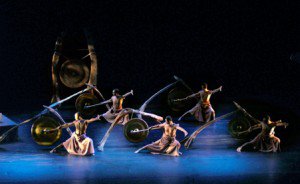
On Laochuan Mountain just 20 minutes
drive from the motorcycle-clogged and fume-filled streets of Taipei
is a remarkable series of open-sided wooden buildings. Part
meditation retreat, part cultural centre and part performance space,
this is home base for the country's acclaimed U-Theatre.
It houses around 20 members who live
communally and have daily exercises in gymnastics and percussion. It
is highly disciplined and not for those with just a casual interest
in being part of the company's ensemble.
“Every morning people do martial arts
or tai-chi,” says founder-director Liu Ruo-Yu, “and after that
they do meditation. In the afternoon we start the drumming classes.
We don't have houses exactly, just like a wood tent. There are no
windows or walls because that is more natural.
“But it can get very cold during the
winter and we need to have a fire so we can work, but most of the
time it is fine. When the city is hot it can be chilly, but when it
rains on the mountain it rains inside too.”
U-Theatre – which came to the Auckland
Arts Festival for performances of their 75-minute piece Sound of
the Ocean, see review below – was founded by Liu and her husband Huang Chih-Chun
in 1984 shortly after she returned from New York where she had
majored in an MA of Theatre Arts and was part of a one-year workshop
lead by the innovative Polish theatre director Jerzy Grotowski.
Liu was a stage actress but her husband
Huang – born in a Chinese-Malay family in Malaysia and who had
learned drumming and martial art since age 11 – was the prime mover
behind the ethos and disciple of the U-Theatre.
“He came to Taiwan to study and after
graduating from the athletic school he joined a dance theatre and I
was studying drama. I invited him to join me in a theatre but he
wanted to go to India for a trip. While there he met a master who
taught him a kind of meditation, a way to let people understand who
they are, and to understand 'the moment'.
“He stayed for six months and every
day watched himself in 'the moment', when he was walking, eating,
drinking and even sleeping. So he always had this sense of watching
himself and concentrating.”
On his return to Taiwan Liu notice the
change in him and they decided all members of the nascent U-Theatre
company should engage in meditation to focus on their inner selves as
much as doing theatre exercises.
The company built its first retreat by
themselves – it has since been expanded – and “people said we
are somehow living the way the monks live”.
“Basically U-Theatre performances
combine martial arts and drumming. But the people need to do this
meditation, and we also run around the mountain for physical training
because the mountain gives us very different from a studio.”
At their centre they offer classes for
other drummers and percussion players, and exercises “to help them
quieten their mind, and movement classes to help people understand
their inner selves”.
U-Theatre has both men and women
performers and Liu notes “the Japanese don't have women drummers in
their tradition, but I have seen some old pictures [of objects] from
the [Chinese] Ching Dynasty [17th to 20th
century] and there are figures which look like women in their shape.”
The piece they are bringing to Auckland
took four years to create and was first performed at a festival in
Avignon in 1998. Since then it been performed around the world. It is
a piece with a sonic narrative which has grown organically in a
manner which parallels its broad and inclusive theme.
“At that time I was pregnant and my
husband was on the mountain with the members and this was the first
time he was going to be a father. Something in his mind was thinking
that this was an unknown life coming, so there was no traditional
melody coming out from him.
“So he just made one sound on the
drum like a 'tock'. Then two sounds 'tock-tock' and then as it grew
it felt like a river, just like the sound of the rain which goes into
a river. And from this came the river to the ocean and the sound
became bigger with more drumming, and louder.
“This was the first piece he made for
Sound of the Ocean.”
Liu says another movement extended
into the sound of water hitting rocks with the drummers responding
physically by jumping in the air and that took the piece into a more
physical arena. Another section considers the deepest and quietest
place of the ocean where Liu says you may still hear “a sound like
'Om' which is always in the Universe”.
“This is the original sound and
that's why we use a lot of gongs which make a sound like 'Om'. That
section is the Sound of the Ocean, but actually in Chinese it
is 'the sound of the heart'.
“And in the last piece we use a gong
which is like the tide and the ocean, and another like a temple gong.
This to share with people the idea there was a bodhisattva who gets
enlightened by the sound of the tide coming and going.
“When the sound goes we think there
is nothing but actually we can still hear that sound, so he gets
enlightened by that. That last piece is called Sound of the
Tides.”
Liu says wherever they have taken the
performance people bring their own cultural experience and memory to
it: in Germany a gentleman afterwards told them it brought up images
of German churches and buildings; in Israel an old woman said she
felt her body was drumming along “as we were all in the same
universe”.
“With this kind of sound and energy, even if the culture and language is different, they find their own experiences to share in this kind of sound.”
REVIEW
U-Theatre: Sound of the Ocean. ASB Theatre, Auckland. March 2011
John Cage's piece 4'33” – where
not a note is played – reminded us that in the
absence of music there is still sound, and the appreciative audience
at the Aotea Centre last night got the message again when -- during
the five minutes it took for 13 U-Theatre percussionists to silently
take their places behind their instruments with a slow, fluid grace
-- the hall resounded to coughs and wheezes. The random nature of
these may have amused a Zen-attuned spirit, but there was nothing
random about the disciplined, often mathematical and vigorously
muscular 90 minute performance which followed.
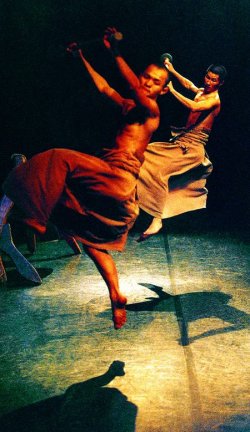
Following the commanding opening piece
and a sublime, calming solo on guqin (zither) by Liao Chiou-Yen, a
smaller ensemble evoked the pitter-patter of raindrops leading to a
torrent.
The most hypnotic piece however was a
lengthy mid-section section on deeply resonating gongs – which
suggested dark oceanic depths – where a millisecond in difference
between the strikes by the five musicians brought out subtly
different tones. Combined with soft throat singing and smaller
chiming gongs, this meditative and moving piece was powerfully
poignant, especially when coupled with the thunderously surging
section which followed. Taken together they evoked of the ocean's
power at a time when many people's thoughts might drift to how that
has affected one of Taiwan's near neighbours in recent days.
Although first performed over a decade
ago, Sound of the Ocean has a timelessness and also travels
well – small sections were reminiscent of Polynesian percussion,
others like From Scratch without the whimsy.
Delivered with expressionless intensity
and monastic concentration, this is an undeniably powerful work which
you might feel glad to see at this time – and not in a few months
when coughers, wheezer and sneezers are out in abundance.

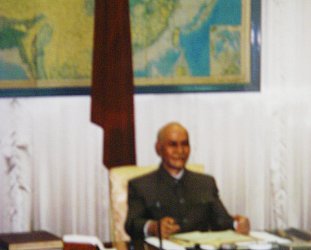
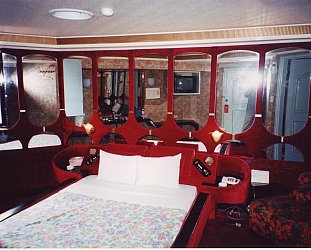

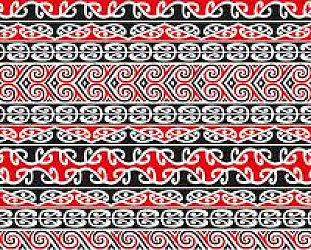
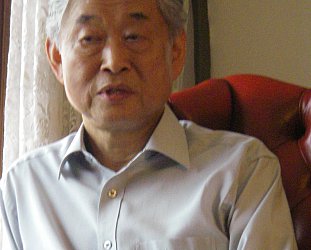
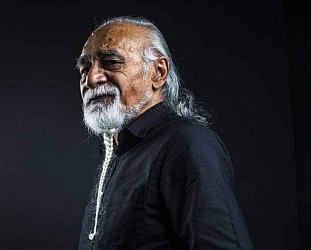
post a comment